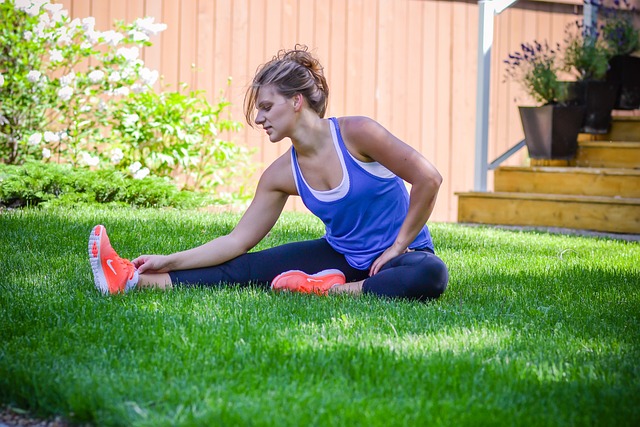The Ultimate Guide and Best Ways to Relieve Stress and Achieve Inner Balance
Feeling overwhelmed and stressed out? Don’t worry, you’re not alone! In today’s fast-paced world, stress has become a common companion for many people. However, it’s essential to find effective ways to relieve stress and regain a sense of calm and balance in your life. In this article, we will explore the best ways to relieve stress techniques and strategies to manage stress, offering you a comprehensive guide to achieving inner balance and emotional well-being.
Understanding Stress and Its Impact
Stress is more than just a fleeting feeling of pressure or tension; it can have profound effects on our physical and mental well-being. Chronic stress can lead to anxiety, depression, and various health problems. To combat stress effectively, we must first understand its impact and take proactive measures to manage it.
Physical Techniques for Best Ways to Relief Stress
Exercise and Physical Activity

One of the most effective ways to combat stress is through regular exercise. Engaging in physical activity not only helps you stay fit but also reduces stress and promotes a sense of well-being. Whether it’s aerobic activities, yoga, or tai chi, incorporating exercise into your routine can boost endorphins, reduce stress hormones, and induce a state of relaxation.
Relaxation Techniques
Engaging in relaxation techniques can be a powerful antidote to stress. Deep breathing exercises, progressive muscle relaxation, and guided imagery are just a few examples of effective relaxation techniques. By practicing these techniques, you can calm your mind, relax your body, and create a sense of inner peace.
Psychological Strategies for Stress Relief
Cognitive Behavioral Therapy (CBT)
CBT is a widely recognized therapeutic approach for managing stress and changing negative thought patterns. By using CBT techniques, individuals can reframe their thoughts and develop healthier coping mechanisms. Cognitive restructuring and thought records are effective tools that can help you challenge and change unhelpful thinking patterns.
Mindfulness and Meditation
Practicing mindfulness and meditation can significantly reduce stress and promote emotional well-being. Mindfulness involves bringing your attention to the present moment and accepting it without judgment. Different meditation techniques, such as focused attention meditation and loving-kindness meditation, can be incorporated into your daily life, helping you cultivate a calm and centered mindset.
Lifestyle Changes for Long-Term Stress Management
Healthy Diet and Nutrition
The food we eat plays a crucial role in managing stress. A balanced diet rich in whole foods provides the necessary nutrients for optimal brain function and stress reduction. Incorporating stress-reducing foods and nutrients, such as omega-3 fatty acids, complex carbohydrates, and antioxidants, can have a positive impact on your overall well-being.

Adequate Sleep and Rest
Quality sleep is essential for stress recovery and maintaining overall well-being. Establishing healthy sleep habits, such as maintaining a consistent sleep schedule and creating a relaxing bedtime routine, can improve sleep quality. By optimizing your sleep environment and prioritizing rest, you can effectively manage stress and enhance your resilience.
Social and Emotional Support
Building a strong support network is crucial for managing stress effectively. Seeking support from friends, family, or support groups during challenging times can provide comfort and a sense of belonging. Additionally, nurturing social connections, spending quality time with loved ones, seeking professional help when needed, and practicing self-care are all vital components of maintaining emotional well-being.
Cultivating Serenity and Resilience in a Stressful World and Best Ways to Relieve Stress
Recap the main points discussed in the article, emphasizing the importance of finding effective and the best ways to relieve stress. By prioritizing self-care and adopting healthy coping strategies, you can take control of stress and lead a more balanced, fulfilling life. Cultivating serenity and resilience is an ongoing journey, but with the right tools and techniques, you can navigate life’s challenges with grace and achieve inner balance.
FAQ Section
Q1: How long does it take to see the benefits of stress management techniques while finding the best ways to relieve stress?
The timeframe for experiencing the benefits of stress management techniques may vary from person to person. Some individuals may notice immediate improvements, while for others, it may take a few weeks or months of consistent practice. Patience and persistence are key.
Q2: Can stress management techniques replace professional help?
Stress management techniques can be beneficial for many individuals, but they may not be a substitute for professional help, especially for those dealing with severe stress, anxiety, or mental health conditions. If you’re struggling with chronic stress, it’s important to seek guidance from a qualified healthcare professional.
Q3: Are there any natural supplements or herbs that can help with stress?
Some natural supplements and herbs, such as ashwagandha, chamomile, and lavender, have been associated with stress reduction. However, it’s essential to consult with a healthcare professional before incorporating any supplements into your routine to ensure they are safe and appropriate for your individual circumstances.
Q4: Can stress be completely eliminated from our lives?
Stress is a natural part of life, and it’s impossible to completely eliminate it. However, with effective stress management techniques, we can learn to cope with and reduce its impact. The goal is not to eliminate stress entirely but to develop resilience and healthy coping mechanisms to navigate life’s challenges successfully.
Q5: Is it necessary to practice all the techniques mentioned in the article?
No, it’s not necessary to practice every single technique. Each individual is unique, and what works for one person may not work for another. Experiment with different techniques and find what resonates with you. It’s about creating a personalized stress relief plan that suits your preferences and lifestyle.
Remember, finding effective ways to manage stress and finding the best way to relieve stress is a personal journey. Be kind to yourself, practice self-compassion, and prioritize your well-being. By incorporating these stress relief techniques into your life, you can cultivate a greater sense of calm, balance, and overall happiness.
